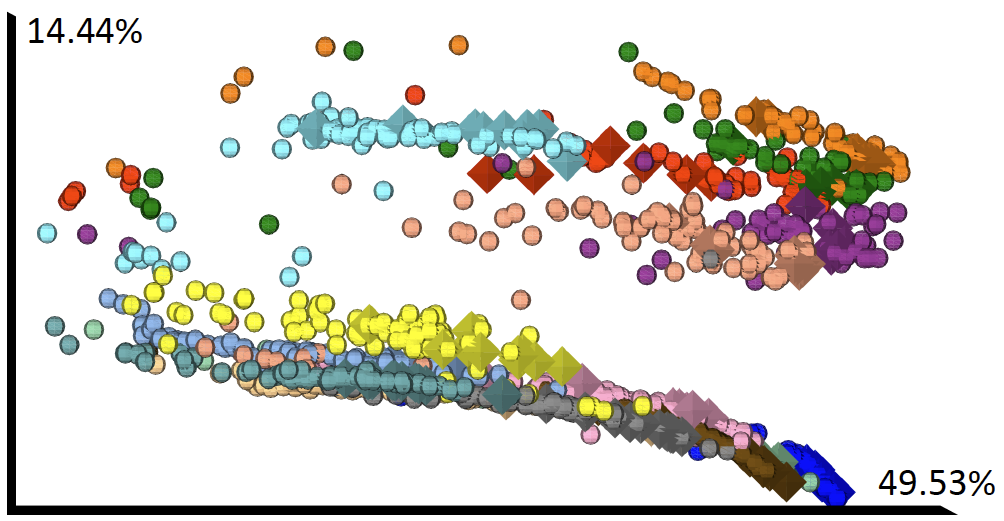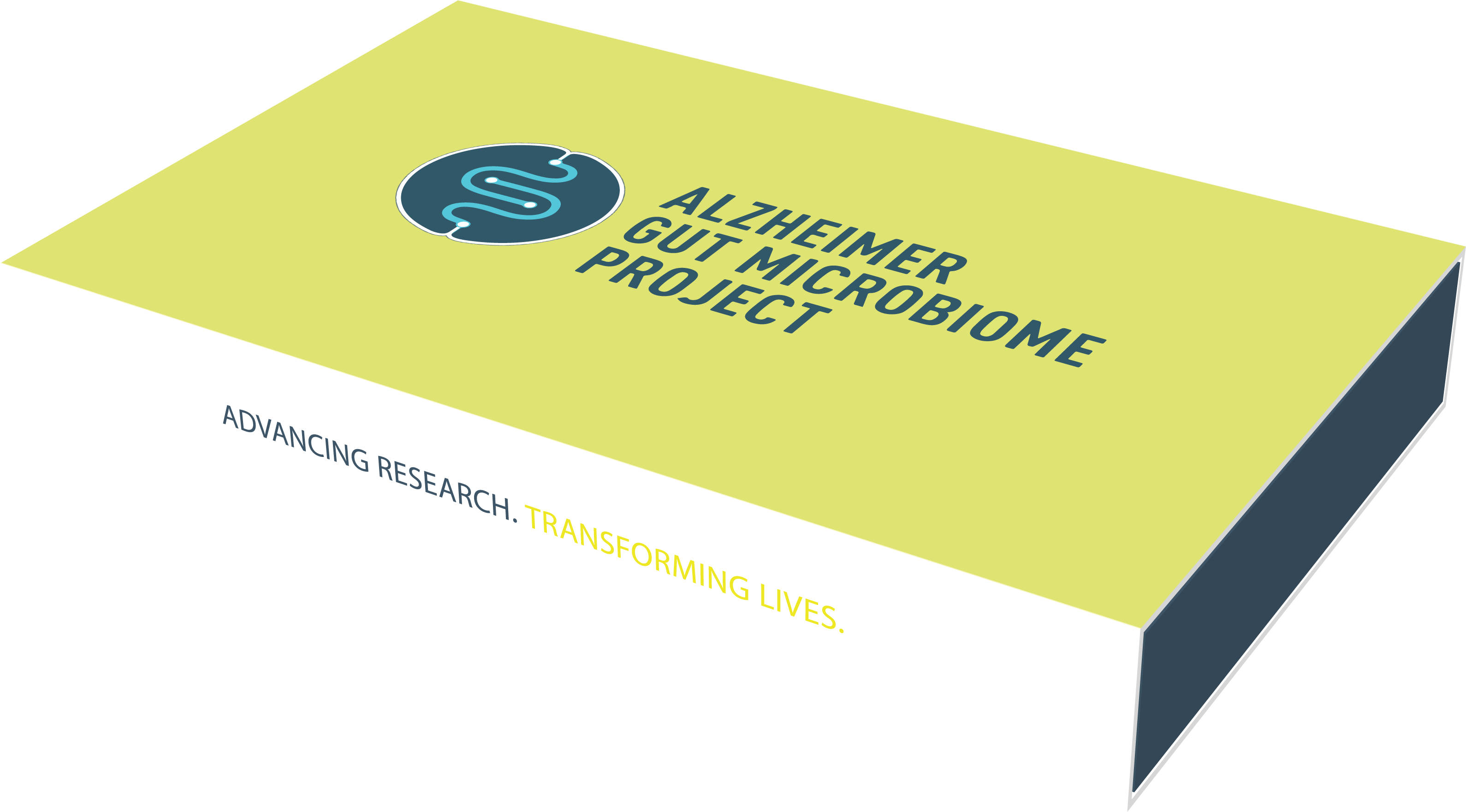Project 1
Changes in Gut Microbiome
& Metabolome Across AD Stages
In this project, we seek a deeper understanding of the role of the gut microbiome in AD pathogenesis by combining powerful metagenomic and metabolomic tools to define biochemical axes of gut-brain communication.
AGMP, in partnership with ten Alzheimer Disease Research Centers across the US, is collecting fecal and blood samples from ADRC participants age 60 and above using our at-home collection kits. We aim to recruit a racially diverse cohort of at least 1000 participants, balanced between those diagnosed with Mild Cognitive Impairment, Alzheimer’s Disease, and controls. We will profile the samples metagenomically and on various metabolomics platforms across our consortium. Data generated will be analyzed and compared against existing metadata to help us elucidate links between the gut microbiome, metabolome, and Alzheimer’s disease pathogenesis.
Aims
Define compositional and functional changes in the gut microbiome across stages of Alzheimer’s disease.
Define metabolome differences in blood and feces related to gut microbiome differences and link to cognitive and brain imaging differences.
Connect blood and brain metabolomes in the ROS/MAP cohort, defining biochemical and immune axes of gut-brain communication.
Explore the role for the gut microbiome in the development of neuropsychiatric symptoms (NPS) in AD.
ADRC Study:
We have partnered with eight Alzheimer’s Disease Research Centers (ADRCs) across the US to collect samples from participants at various stages of disease.



Sample Collection Kits
Using AGMP at-home sample collection kits for microbiome samples as well as data acquired by the ADRCs including brain scans, cognitive, and biochemical data, we aim to understand the connections between the gut microbiome and the pathophysiology of AD.
Objectives:
- In an elderly, cognitive-impaired population, validate the utility, implement, and test ease of use of currently available at-home sample collection kits, that allow us to collect various sample types
- Enable collections of blood and fecal samples that will allow us to map changes in the gut microbiome and metabolome in Alzheimer patients
- Identify issues that can be addressed before finalized kits are produced.
- Allow sample collections during reduced clinical activities
- Collective analysis of data and publications
